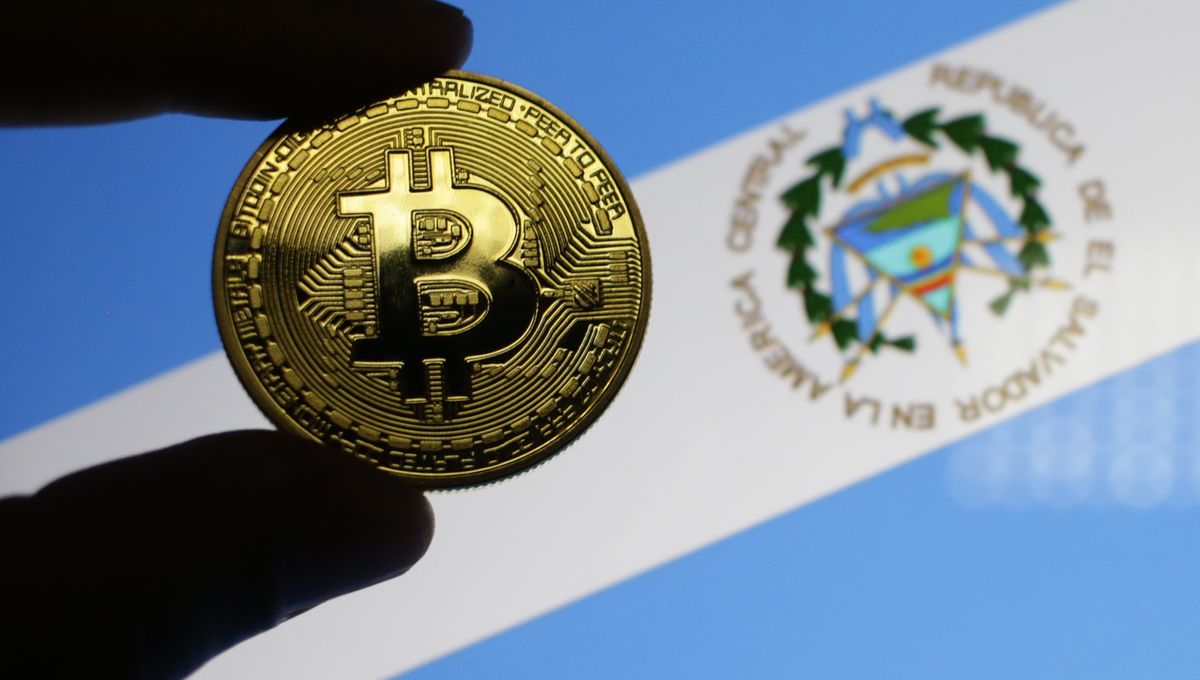
In 2021, the government of El Salvador did what many fans of cryptocurrencies had been pleading for: it made Bitcoin legal tender. All businesses in the Central American country were legally required to accept Bitcoin as an alternative to the US dollar, which had been El Salvador’s only currency since 2001. The government even launched an app to make it easier for Salvadorans to join the world of digital currency. Many economists predicted disaster, but three saw an opportunity to study the results, and have now published their findings.
Enough people have been burned by cryptocurrencies that some of the hype around them has died down, but there are plenty still convinced it’d save the global economy if only central banks would get out of the way. Professor Fernando Alvarez of the University of Chicago and co-authors tell a very different story.
El Salvador’s adoption of crypto has produced neither the stunning success nor the disaster predicted by opposite sides of the debate, for the simple reason that most of the population never went near it. Even those that did have used it less as time has gone on, suggesting it is not merely learning how to open an account and use a cryptocurrency to buy things that forms an obstacle. The authors explored who was most likely to get on board with the experiment, and the reasons why people did or didn’t participate.
Most governments have either taken a hostile approach to cryptocurrencies, seeing them as a means to evade taxes or pay for illegal activities, or stayed neutral. El Salvador stands out in getting behind the idea, at least partly because the country has a problem few rich nations share.
Like most other developing nations, El Salvador has a lot of people (two-thirds in its case) locked out of the banking sector because financial institutions see them as carrying more risk than they are worth. Unable to get a credit card, borrow from regulated lenders, or store what little money they have securely, these people’s economic progress is greatly impeded, holding back the whole country with them.
To President Nayib Bukele, cryptocurrency, facilitated by his Chivo Wallet app, offered the answer.
“For the unbanked and those reliant on remittances, Bitcoin presents a potential solution by enabling financial transactions, bridging the gap left by traditional banking systems,” Alvarez and co-authors write.
Certainly, Bukele gave digital currencies a boost private programs probably never could. The app charges no transaction fees, users received a $30 bonus to download it, and the government backing could also provide assurance against the possibility of it being a scam.
In February 2022, the three economists organized a survey of 1,800 Salvadoran households regarding their app use. More than two-thirds of respondents knew about the Chivo Wallet, and three-quarters of those had tried to download it.
For those who succeeded, most quickly spent the $30 starting money – unsurprising in a country where that is almost two days’ average wages. However, having used this money to buy goods or services, most hadn’t used the Wallet since. Of those that did, most made use of the app’s capacity to transfer US dollars, rather than Bitcoin. Only 5 percent of the population have paid their taxes in Bitcoin, for example. Among the minority that continued to use the Wallet, transfers were 3 to 4 times as likely to be made in US dollars as in Bitcoin.
Remittances from family members working in the United States represent a major source of income for many Salvadorans, estimated at 23 percent of GDP. Given the hefty bite banking services take out of international transfer fees, facilitating remittances was considered one of the Chivo Wallet’s biggest selling points, yet only 3 percent of respondents reported getting remittances this way.
Those who kept using the Chivo Wallet were predominantly young, highly educated, and male: not the demographic most in need of banking assistance, but definitely the one most likely to bore you at parties about how great crypto is.
Although many non-users gave not owning a smartphone as their reason for not using the Wallet, concerns about security and privacy were even bigger deterrents. Many rejected Bitcoin because they said they didn’t understand it.
Publicly available data on Bitcoin transactions confirms this research. There was a considerable amount of money transferred to or from Chivo Wallets soon after its launch, but three months later usage had crashed, and it has never recovered.
Since El Salvador passed its Bitcoin Law, two other countries have followed. Although results are not yet available for either, prospects seem poor, particularly since neither offered incentives as generous as El Salvador’s to get people using it.
At least El Salvador produced the power for the project from geothermal energy, so unlike most other Bitcoin users, the planet wasn’t cooked as a side effect.
The study is published in Science.
Source Link: Can Cryptocurrencies Ever Be Legal Tender? This Is What We Learned From El Salvador